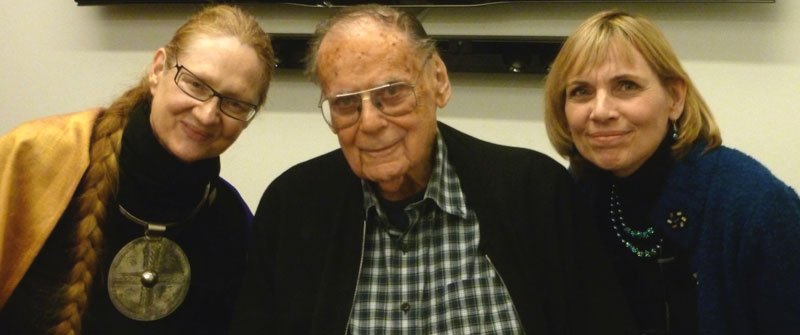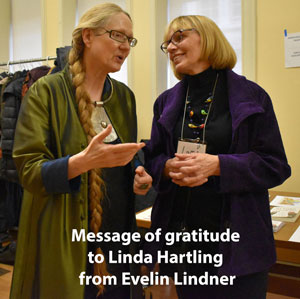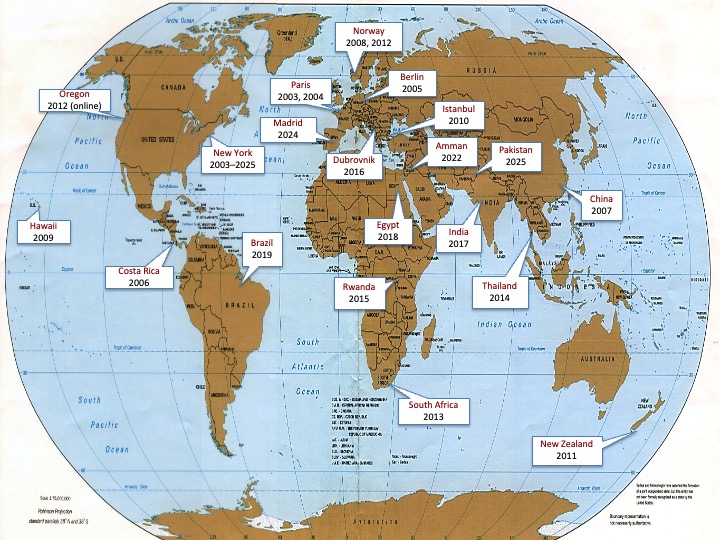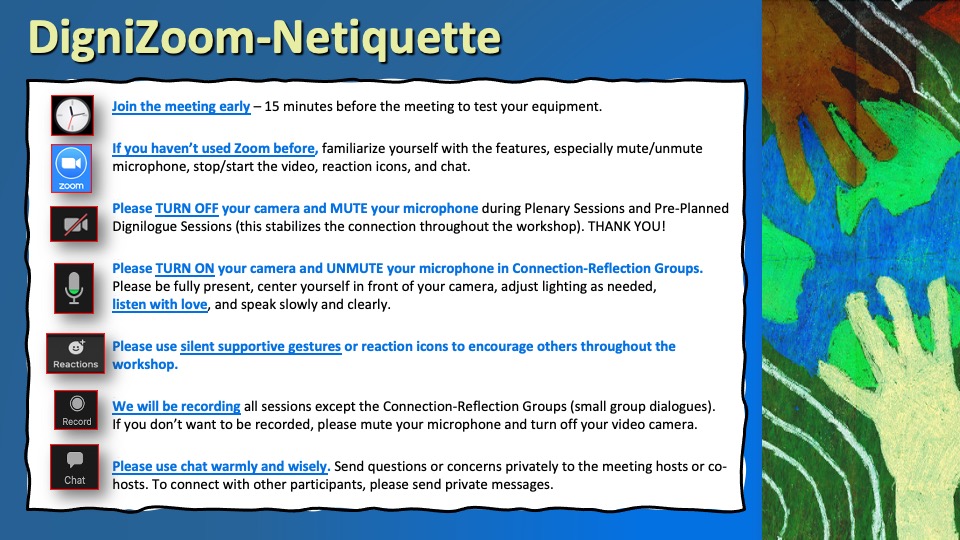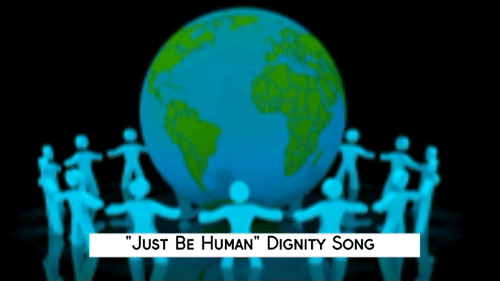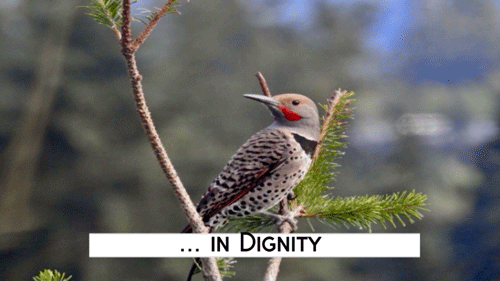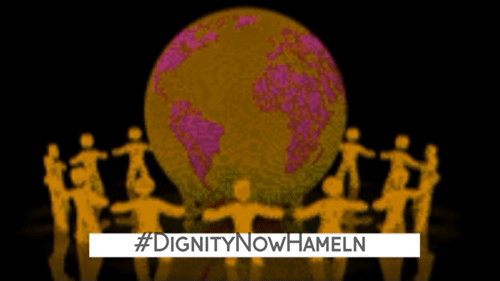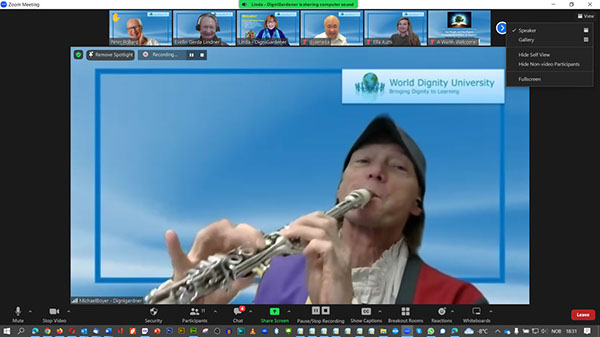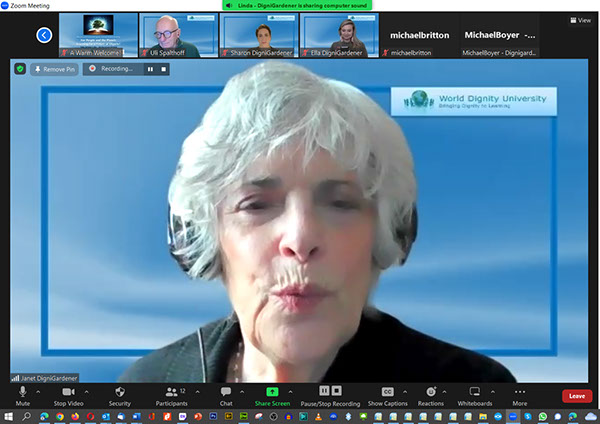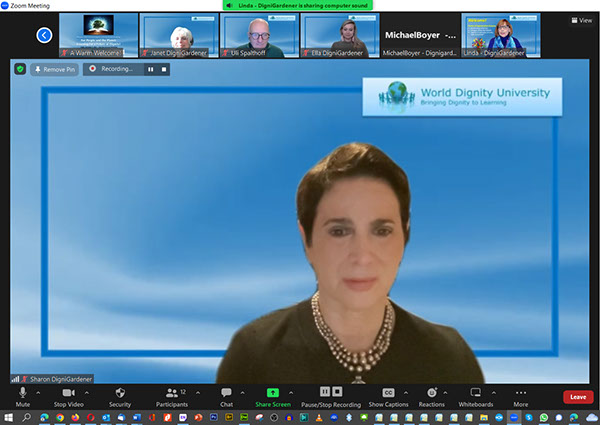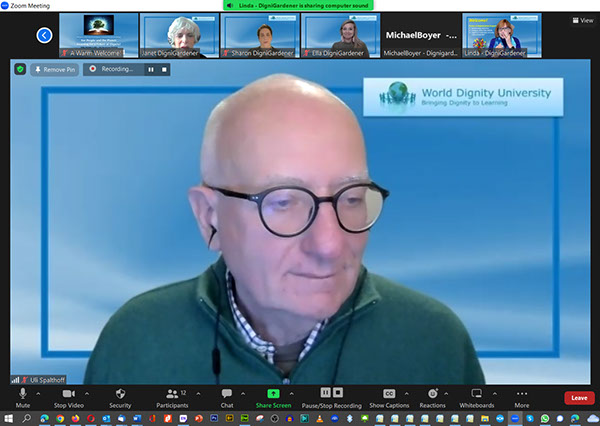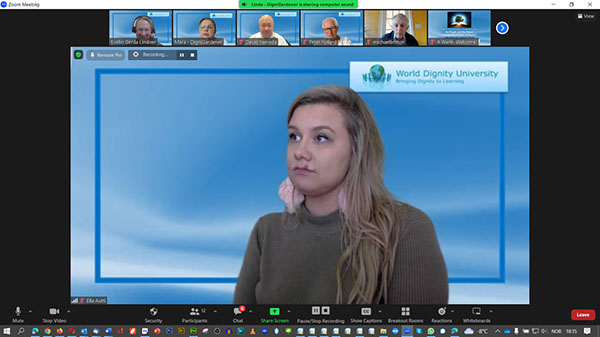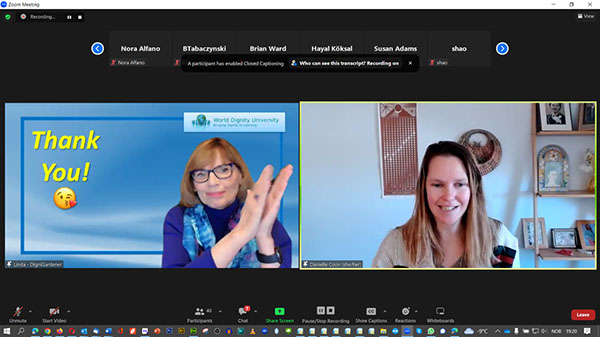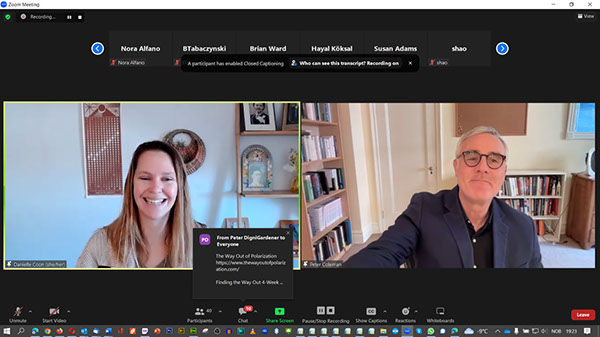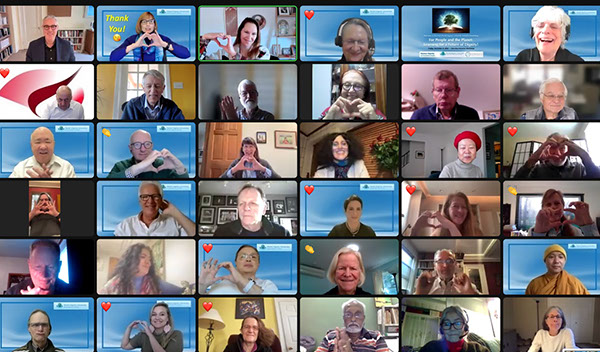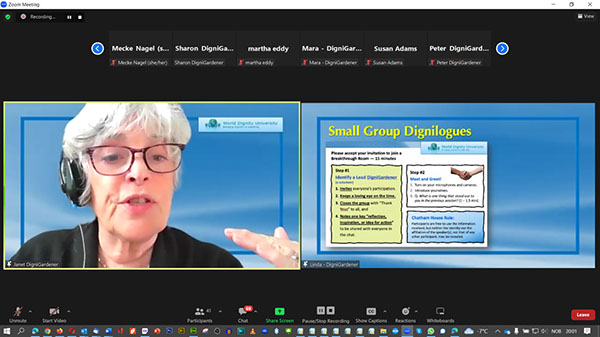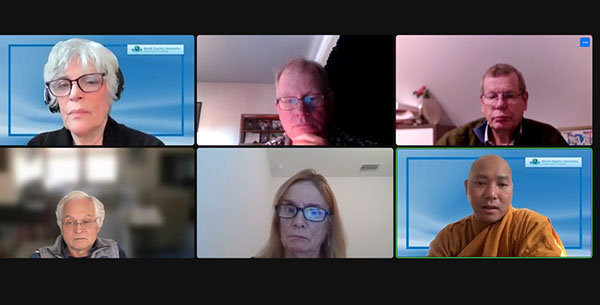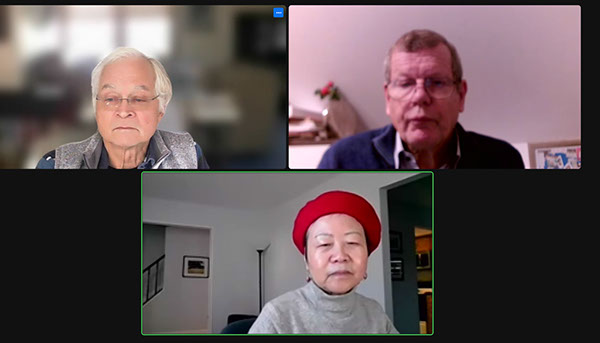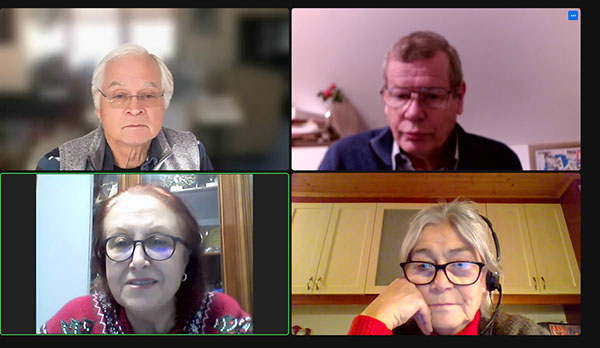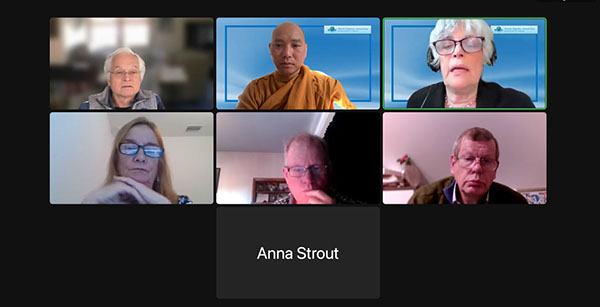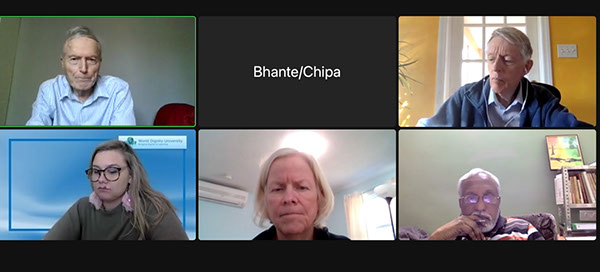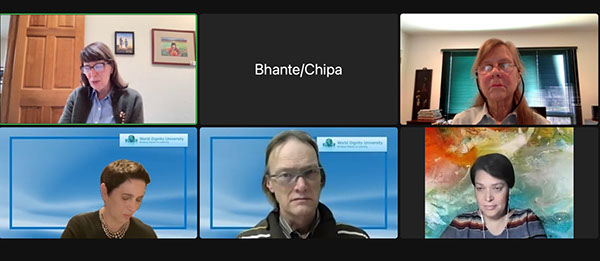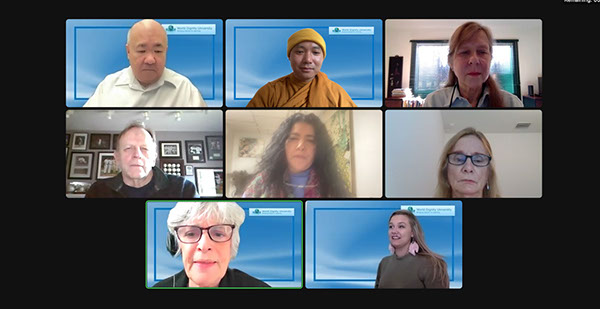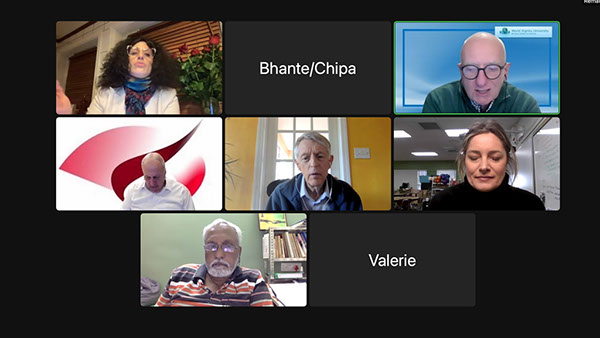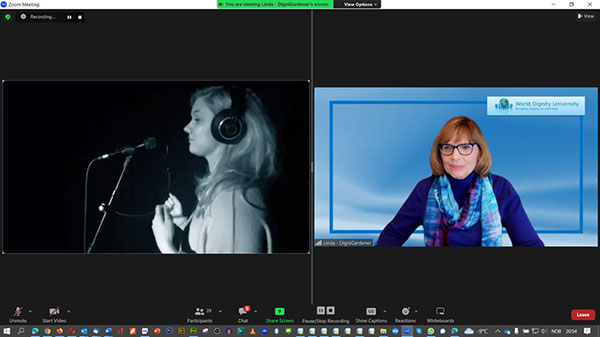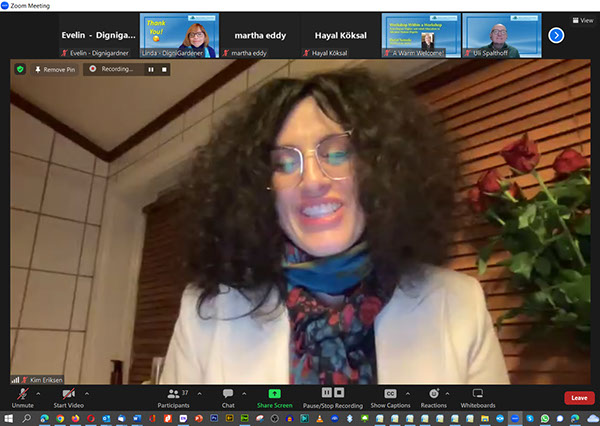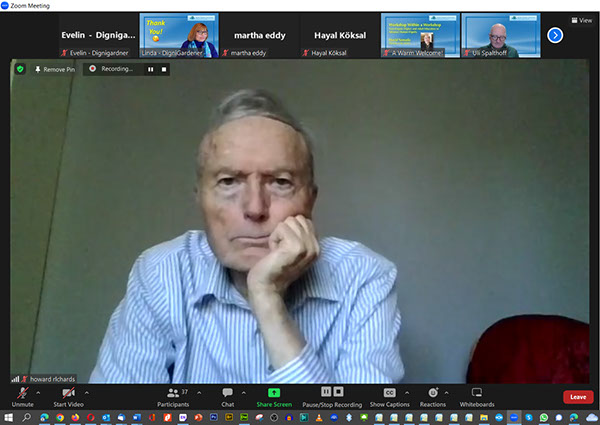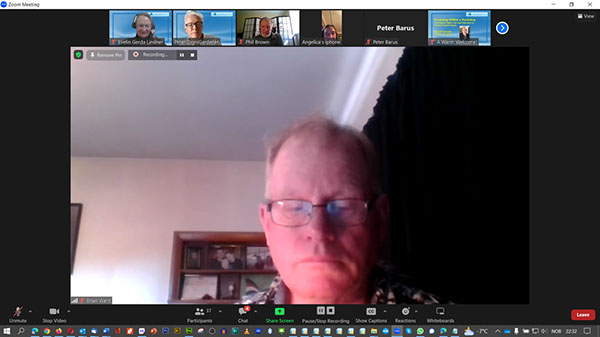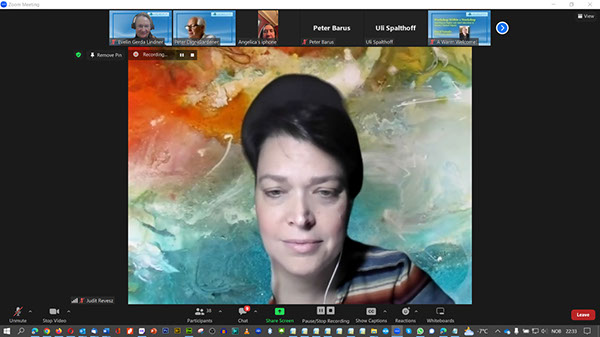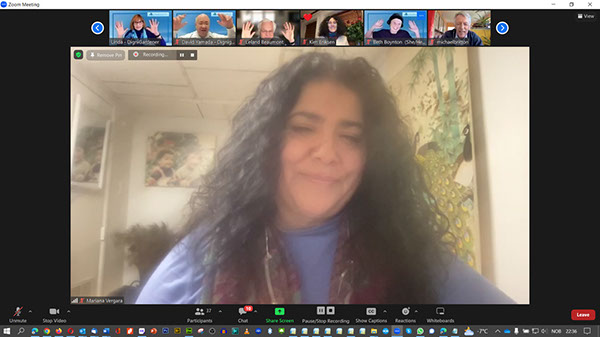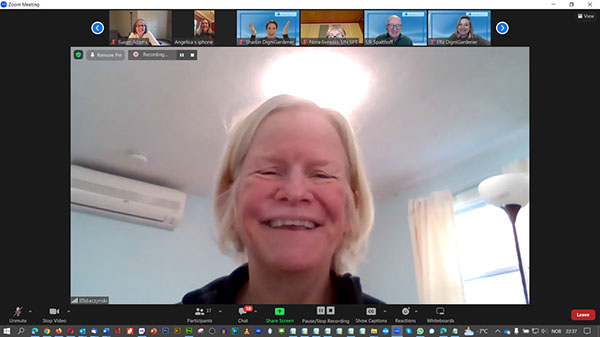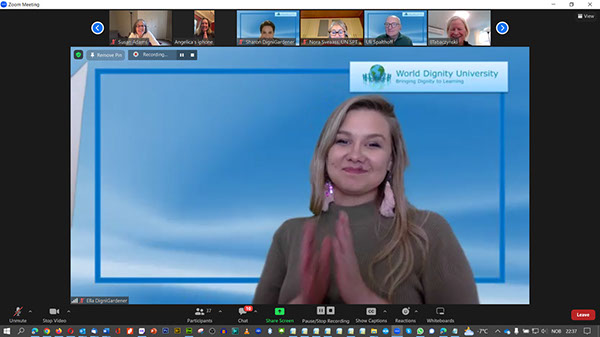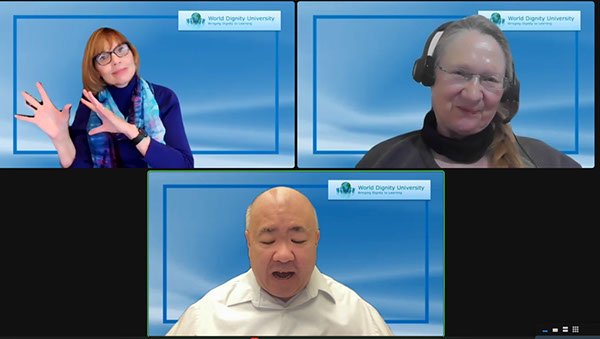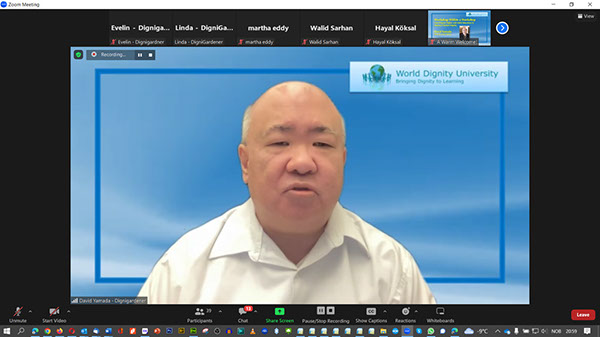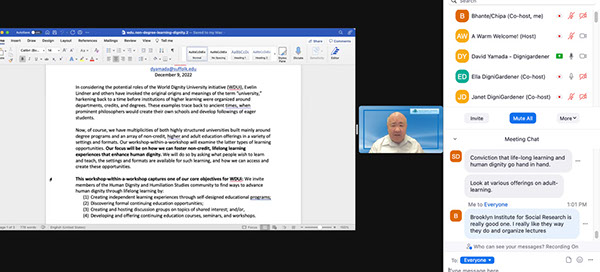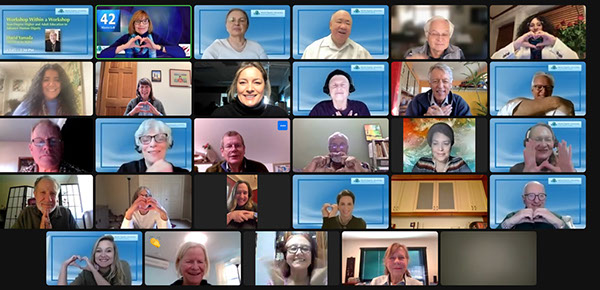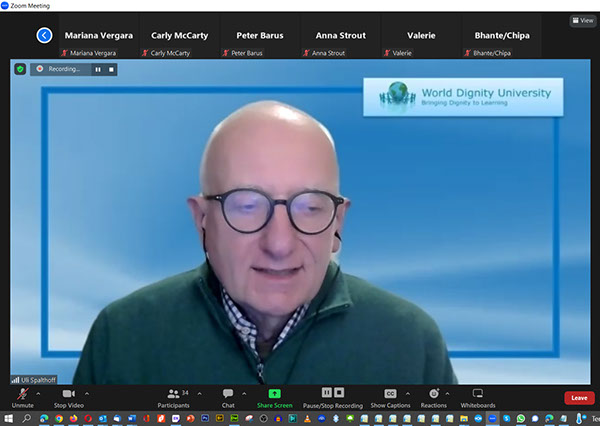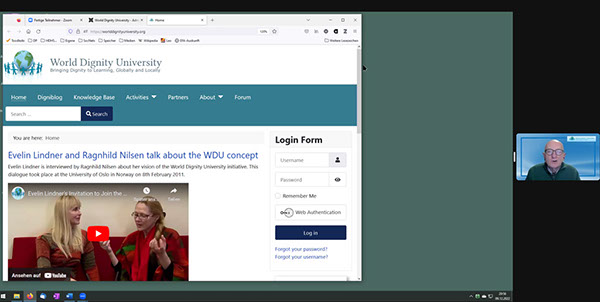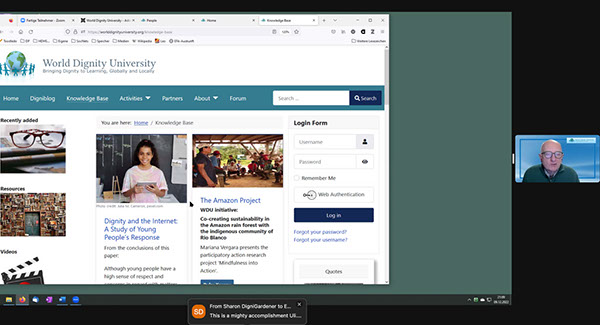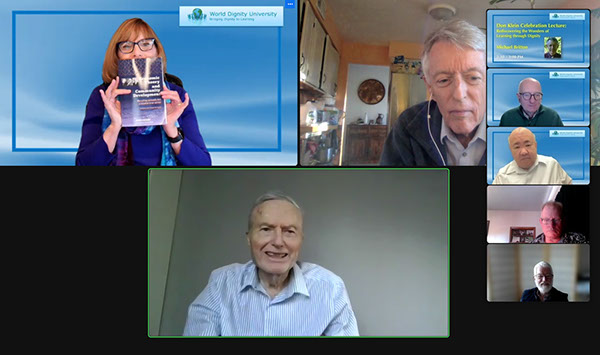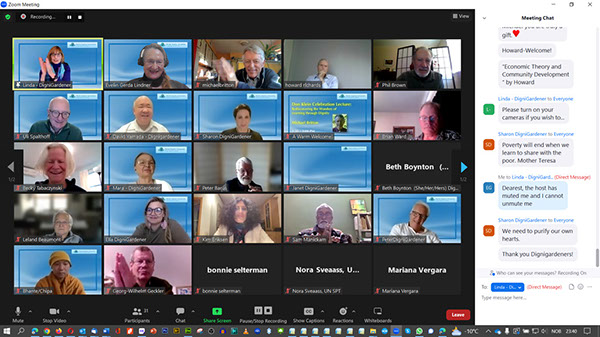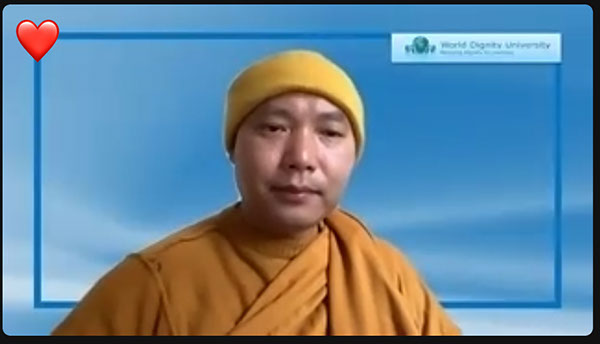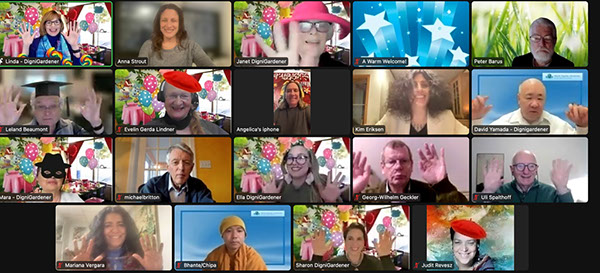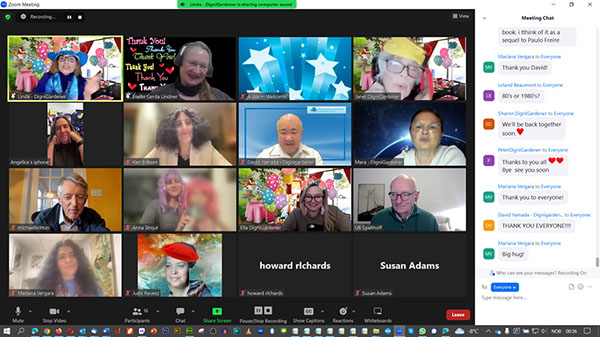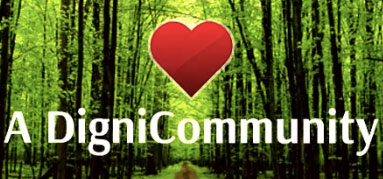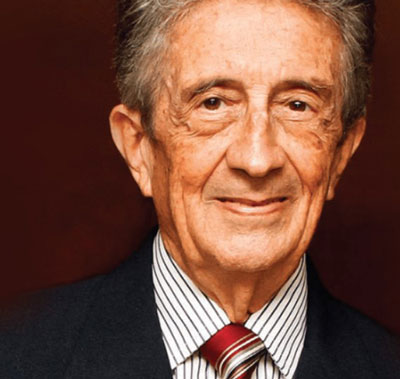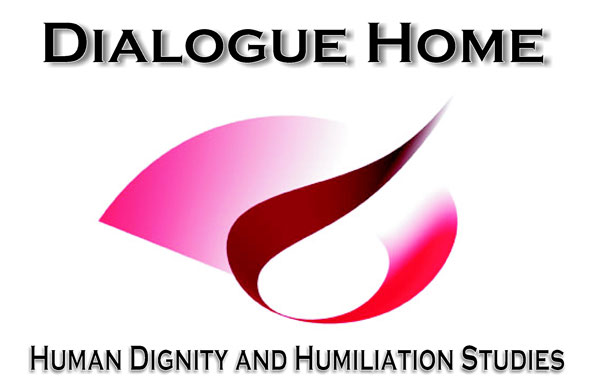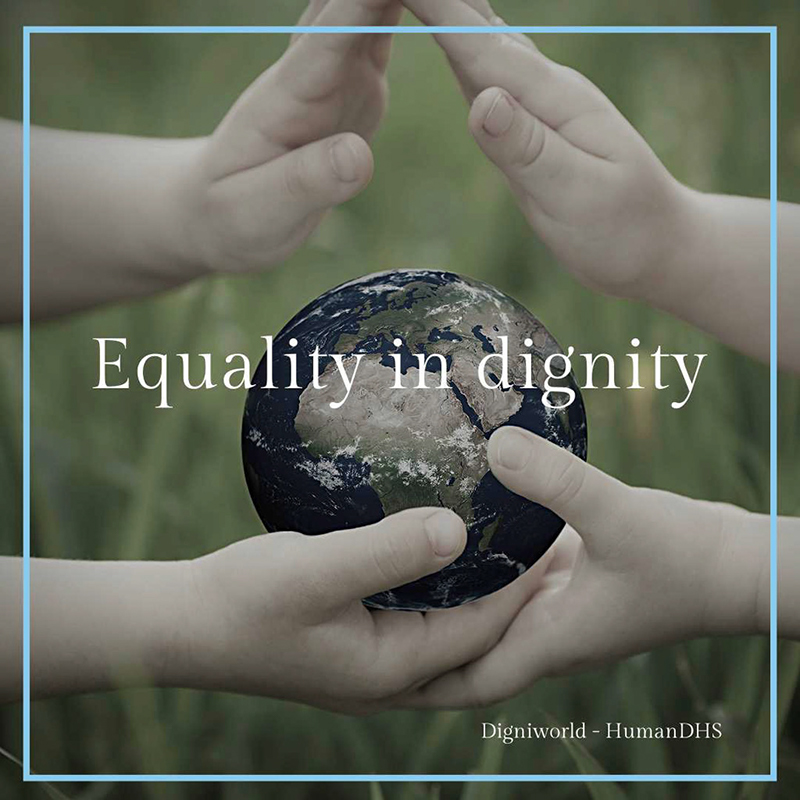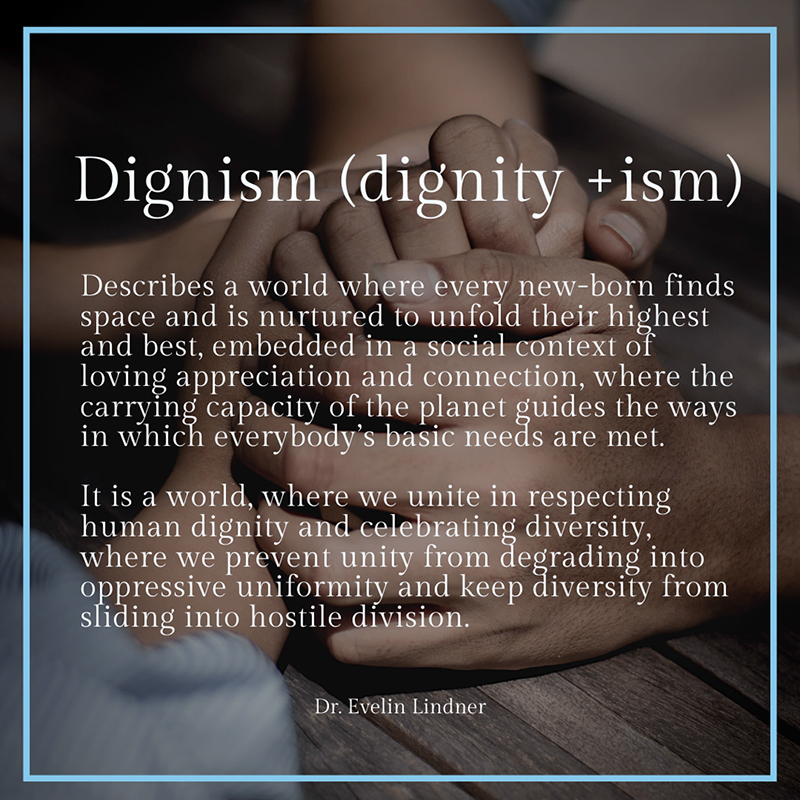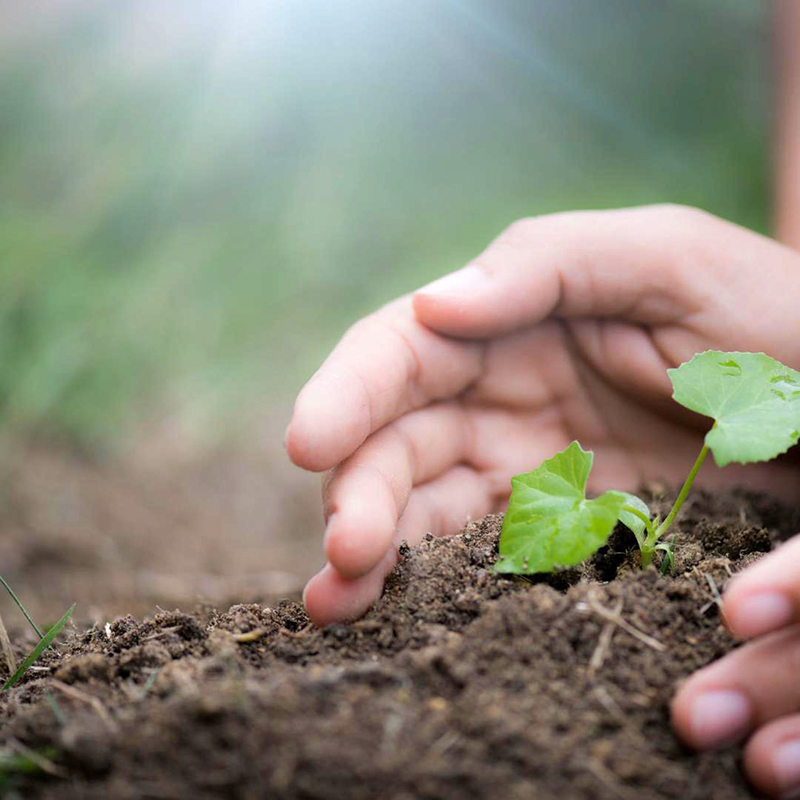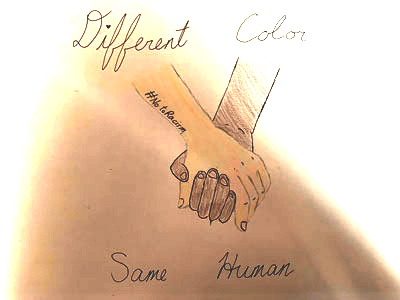The First World Dignity University Initiative Workshop
For People and the Planet: Learning for a Future of Dignity
representing
the
38th Annual HumanDHS Conference
as well as the 19th
Annual Workshop on Transforming Humiliation and Violent Conflict
hosted
by
The Morton Deutsch International Center for Cooperation and Conflict Resolution
(MD-ICCCR)
December 9, 2022
11.00 am – 4.00 pm New York Time
(Calculate your local time, Aotearoa/New Zealand one day ahead)
This was a
virtual workshop with 75 participants registered from all continents
Kindly see the program further down on this site or download it as Pdf
Kindly see also:
• The invitations that were sent out prior to the workshop, on October 16, 2022, and on November 14, 2022
• The Newsletter compiled directly after the workshop
• Dignity Letter — Learning Our Way to a New Future! sent out on 16th February 2023
This workshop series is being hosted annually since 2003 Honorary Convenor since 2003
|
In preparation for attending our workshops, all participants are kindly asked to make themselves familiar with
the Appreciative Enquiry Frame that we use in our work.
See an introduction created by Linda Hartling on August 23, 2022 |
Thank you for always reviewing the following tips for smooth "zooming"
• Please watch Linda Hartling explaining the use of the camera and microphone during this workshop (Video on Day Three of last year's workshop) |
Program of the Workshop
11:00 – 11:30 am
Welcome and Greetings, Introducing this Special Workshop
|
The Dignity Anthem
|
Thanking the Dignigardeners
|
Building a Mutual-Learning Community: The Appreciative Enquiry Approach
|
Danielle Coon Introduces the Morton Deutsch Center
|
11:30 am – 12:00 pm
The Way Out Challenge
|
Thanking Peter Coleman with Anna Strout
|
12:00 am – 12:15 pm
Meet and Greet – Small Group Dignilogues – Introduced by Janet Gerson
|
Bonnie Selterman Recites Ways of Learning, a Spoken Poem
|
12:15 pm – 12:30 pm
Learning for a Dignified and Dignifying Future
|
Ella Autti Sings Over the Rainbow
|
12:30 – 12:45 pm
Bio-Break/Coffee Break (please mute) — Chat Open
|
12:45 – 2:30 pm
Non-Degree Higher and Adult Education to Advance Human Dignity
|
Thanking David Yamada with Anna Strout
|
2:30 – 3:00 pm
Introducing the WDUi Electronic Learning Platform
|
3:00 – 3:45 pm
Rediscovering the Wonders of Learning Through Dignity
|
Howard Richards
|
Beth Boynton Invites Dignity Movement
|
Appreciations
|
3:45 – 4:00 pm
Janet Gerson Invites Final Reflections
|
BYOP: Bring Your Own Pizza Party!
|
Music, Movement, and Poetry
A big thank you to all |
|
|
• Bonnie Selterman kindly recited Ways of Learning, a spoken poem composed for the specific theme of this year's workshop (Video | spoken recording on November 18, 2022 | Pdf) |
• Francisco Gomes de Matos kindly composed a rhymed reflection as a contribution to this Workshop on November 17, 2022 Dignity is a mulltidimensional |
Registered Participants (alphabetical according to the first name)
In the 2020 registration form, participants were warmly invited to reflect on the following question: What does dignity mean to you?
In the 2021 registration form, the question was: What does dignity through solidarity mean to you?
Many participants kindly offered their conceptualization of dignity and their responses are listed below. Furthermore, the relational nature of our dignity work is made visible by small personal "love letters" that honor the dignifying connectivity that forms the foundation of the global dignity fellowship.
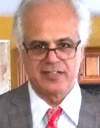 |
Alayar Kangarlu, New York CityAssociate Professor of Neurobiology at Columbia University.
|
||||||||||||||||||
|---|---|---|---|---|---|---|---|---|---|---|---|---|---|---|---|---|---|---|---|
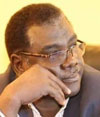 |
Abuelgassim Gour, Khartoum, Sudan
|
||||||||||||||||||
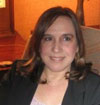 |
Angélica Walker, New York City and BrazilWhen asked "What does 'dignity through solidarity' mean to you?" Angélica responded by saying, "Everything! Without solidarity 'dignity' is just an institution." |
||||||||||||||||||
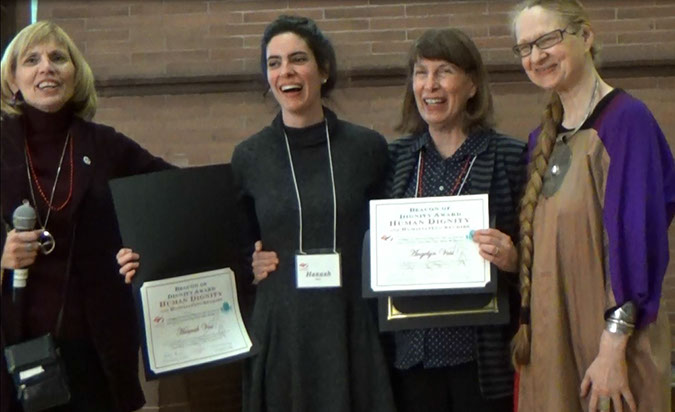 |
Angelyn Voss, Oregon, U.S.A.In her registration for this workshop, Angelyn wrote: "As a teacher and member of society, one must exude respect to all students and individuals. Promoting dignity opens the doors to acceptance, encouragement, peace, learning, and ultimately, love." Angelyn invites everyone to visit her website www.angelynchristyvoss.com. She is happy to donate a book or a piece of artwork if that could help. |
||||||||||||||||||
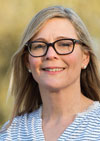 |
Anke Winchenbach, Guildford, EnglandWhat does "dignity through solidarity" mean to you? "Makes me think about the core values of the Economy for the Common Good, where solidarity spans across all stakeholders." |
||||||||||||||||||
 |
Anna Strout, Albuquerque, New Mexico, New York City, U.S.A.Dear Anna! We have many names for you, and all the names we have for you express our love, gratitude, and admiration for you! We have names such as Dignity Angel...!
• Thanks so much also for sharing this Message to the World — Prevent Domestic Violence in our 2020 workshop!
(PSA shared on November 15, 2020 | Small poster | Video) |
||||||||||||||||||
 |
Asma Ahmad, Dubai, United Arab EmiratesZaha Experience Fouder/ UN consultant Human narrative, accountability, ownership, diversity and inclusion
|
||||||||||||||||||
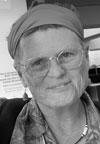 |
Beth Boynton, Dover, New Hampshire, U.S.A.When asked "What does 'dignity through solidarity' mean to you?" Beth explained, "We are creating a rippling effect of dignity throughout the world. A way of being together." |
||||||||||||||||||
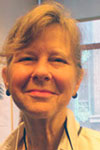 |
Bonnie Selterman, Greater New York City AreaYou are among our deepest and most complex thinkers and most loving nurturers of dignity, dear Bonnie! We cannot imagine our workshop series without you anymore! You generously joined us in 2013, 2014, 2015, 2016, 2017, 2018, 2019, 2020, 2021! Thank you for sharing your profound reflections also in this workshop, as always! • Escaping Complicity — A Poem (Video | Pdf | Spoken recording on November 21, 2020) |
||||||||||||||||||
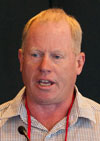 |
Brian Ward, Christchurch, New Zealand/Aotearoa What does "dignity through solidarity" mean to you? "It means the ultimate solidarity that equal dignity offers all humans." Thank you also very much for sharing your thoughts at the end of last year's workshop (Video)! |
||||||||||||||||||
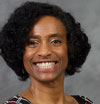 |
Camille Butterfield Elliott, Springfield, Massachusetts, U.S.A.Camille Butterfield Elliott kindly wrote in 2020: My name is Camille Elliott and I am a student affairs professional with 30 years of higher education experience. I am currently a mediator in training and have volunteered with conflict mediation firm assist consumers with fostering creative problem solving through colloaborative dialogue. I am also new to restorative justice practices for problem solving in healing in youth-based conflicts. |
||||||||||||||||||
 |
Carly McCarty, Riverside, U.S.A.When asked "What does 'dignity through solidarity' mean to you?" Carly explained, "Dignity is the intrinsic value in every human being. Solidarity is acknowledging, empowering, and advocating for the value that every human being deserves." |
||||||||||||||||||
 |
Charlott Macek, New York CityThank you so much, dear Charlott, for your untiring support to our dignity work since you began working with the MD-ICCCR in 2013, after your time at the book shop of Teachers College! Each year, you give us great courage! What would we do without your expert caring hand in the background and your wonderful presence! |
||||||||||||||||||
 |
Chipamong (Chipa) Chowdhury, or Bhante Revata Dhamma (monk's name, known in the monastic communities), Nomad Eco-Monk, with interest in Nomadic life, Buddhism/Cinema, Pali literature, Religion/Politics/global affairsWhen asked "What does 'dignity through solidarity' mean to you?" Bhante Revata explained, "It reminds me of the words 'Agitate, educate and organize' by Dr. Ambedkar." |
||||||||||||||||||
 |
Christine de Michele, North Carolina, U.S.A.Dignity (2020): "Equity and a good life for all living beings." Thank you so much for bringing your amazing art to our workshops every year since 2014, dear Christine! How happy we are that Anna Strout brought you to us! |
||||||||||||||||||
 |
Christine Marie Katas, Utah, U.S.A.Christine Marie Katas is a media psychology professional and founder of Voices for Dignity, an organization that promotes online kindness and compassion, and that contributes resources and advocacy for survivors of humiliation and oppression such as human trafficking, spiritual abuse, public humiliation, etc. |
||||||||||||||||||
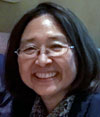 |
Donna Fujimoto, Osaka, JapanWhen asked "What does 'dignity through solidarity' mean to you?" Donna explained, "To me it means learning about the plight of others — not just second-hand through reading or documentaries--but by meeting with those who have lived experience and they can open our collective eyes to what is happening in our world." |
||||||||||||||||||
 |
Danielle Coon, New York City Dearest Danielle, ever since you took over as Associate Director of the Morton Deutsch International Center for Cooperation & Conflict Resolution (MD-ICCCR) in 2015, you grew very close to our hearts! What a beacon of dignity you are! We are deeply grateful to you for your untiring ongoing loving support! |
||||||||||||||||||
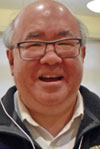 |
David Yamada, Boston, Massachusetts, U.S.A.David C. Yamada is the recipient of the 2015 HumanDHS Lifetime Commitment Award. David is a professor of law and director of the New Workplace Institute at Suffolk University Law School in Boston. David is a globally recognized scholar and authority on workplace bullying and worker dignity. At our annual workshops, he has frequently shared topics such as workplace bullying and abuse, dignity at work, and therapeutic jurisprudence. See this article in the journal of the American Bar Association, "David Yamada is fighting to end workplace bullying," by Amanda Robert, ABA Journal, December 1, 2021. THANK YOU so much that you facilitated a "Workshop within a Workshop" titled Non-Degree Higher and Adult Education to Advance Human Dignity
in this year's conference that was dedicated to the World Dignity University initiative (Video | Pdf)! |
||||||||||||||||||
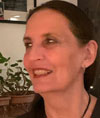 |
Elaine Meis, New York CityElaine Meis is a political activist and a member of the New York City Dignity Now Group. |
||||||||||||||||||
 |
Elenor Richter-Lyonette, St. Sulpice, SwitzerlandWhat does "dignity through solidarity" mean to you? |
||||||||||||||||||
 |
Ella Nygård Autti, Rovaniemi, Finland
When asked "What does 'dignity through solidarity' mean to you?" Ella explained, "The actions, words and language I take and use every day towards my fellow human beings." Ella Nygård Autti wishes to help healthcare organizations to have mutually respectful and humane work cultures. She is currently undertaking PhD research into shame and humiliation in healthcare work communities at the University of Lapland, Finland. She aims to pursue an understanding of the systems and dialogues that humiliate or cause shame in work settings. She holds a master's degree in social sciences and has a background in marketing and communications. |
||||||||||||||||||
 |
Emmanuel Ndahimana, Kigali, RwandaDear Emmanuel, we are deeply thankful to you for hosting our 2015 Dignity Conference in Kigali, Rwanda, THANK YOU! |
||||||||||||||||||
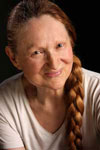 |
Evelin Lindner, Global
|
||||||||||||||||||
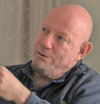 |
Gavin Andersson, South AfricaAdjunct Professor, University of Cape Town Graduate School of Business |
||||||||||||||||||
 |
Gay Rosenblum-Kumar, New York City
|
||||||||||||||||||
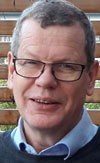 |
Georg Geckler, Hameln (Hamelin), Germany
|
||||||||||||||||||
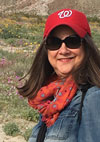 |
Grace Feuerverger, Toronto, Canada
|
||||||||||||||||||
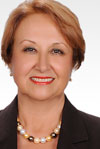 |
Hayal Köksal, Istanbul, Turkey
|
||||||||||||||||||
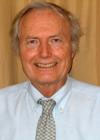 |
Peace Philosopher Howard Richards, Chile, South Africa, and California (Justine Richards)Dear Howard! Congratulations with the 2021 HumanDHS Lifetime Commitment Award! When asked "What does 'dignity through solidarity' mean to you?" Howard explained, "It is a good phrase for starting conversations. Among the meanings I would like to attribute to it is sharing surplus, devoting whatever we do not need to the common good, and in particular creating dignified work that does not depend on sales to be funded. For example I fund a young woman who is an expert organic gardener to work on our quinta. She also does education, teaching gardening in a local elementary school." |
||||||||||||||||||
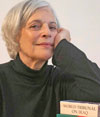 |
Janet Gerson, New York City
|
||||||||||||||||||
 |
Jeyver Rodríguez Baños, Santiago, ChileProfessor Faculty of Philosophy, Temuco Catholic University |
||||||||||||||||||
 |
Judit Révész, New York City, Geneva, Switzerland, HungaryMessage from Evelin: Dearest Judit, I will never forget the day when you welcomed me to Teachers College, Columbia University, on December 17, 2001, just before I gave the talk titled Humiliation and the Roots of Violence at
3.30 pm, upon the invitation of Betty Reardon, attended, among others, by Morton Deutsch! |
||||||||||||||||||
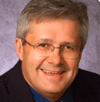 |
Julian Bodnar, Saskatoon, Saskatchewan, CanadaMediation, Arbitration, & Conciliation Services |
||||||||||||||||||
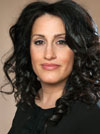 |
Kimberly Eriksen, Oslo, NorwayKimberly Eriksen initiates and leads research and investigatives efforts into human rights related issues. She identifies destructive disrespect and humiliating practices and works to promote dignity, humility, compassion, and mutual respect. She develops content and material to raise awareness to issues while simultaneously bolstering support for positive solutions. She collaborates with cross-functional and transdisciplinary researchers and investigators to advocate for the protection of fundamental human rights and dignity. |
||||||||||||||||||
 |
Larry Visser, Casselberry, Florida, U.S.A.Founder of
Dignity Dialogues |
||||||||||||||||||
 |
Leland "Lee" R. Beaumont, Middletown, New Jersey, U.S.A.When asked "What does 'dignity through solidarity' mean to you?" Lee explained, "When we can recognize that respecting the human dignity we are each born with provides the basis for moral reasoning and daily decision making, we can unite on this common ground." |
||||||||||||||||||
 |
Linda Hartling, Portland, Oregon, principle convener of this workshop, please see her bio below and here!Dignity? "A world without humiliation dignifies us all!" |
||||||||||||||||||
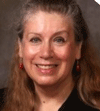 |
Linda Longmire, Nassau County, New York, U.S.A.Linda is Professor of Global Studies and Geography at Hofstra University, where she teaches Globalization and Human Rights, Globalization and Human Trafficking, and Women’s Studies. |
||||||||||||||||||
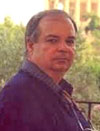 |
Lucien Xavier Lombardo, Virginia, U.S.A.Dignity (2020): "An essence of our lives that connects with its meaning and others. It exists in experience and does not need to be judged, measured or defined. Unlike justice, equality, fairness, equality, dignity does not yield to power; it is not subject to measurement; it is not based on a judgment; it is not political! Dignity is!" |
||||||||||||||||||
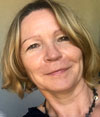 |
Maggie O'Neill, Ireland and EnglandWhat a gift, dear Maggie, that esteemed Ruth Lister brought you to us in 2005, and that you came all across the Atlantic to our workshops in New York City in 2005, 2006, 2007, 2012, and 2013! How WONDERFUL to have you with us now again! |
||||||||||||||||||
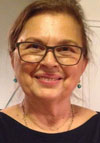 |
Mara Alagic, Austria, Bosnia and Herzegovina, Kansas, U.S.A.
|
||||||||||||||||||
 |
Mariana I. Vergara Esquivel, New Jersey, U.S.A., and EcuadorThank you so much for establishing a Ruku Kausay World Dignity University Amazonian Branch in the Rainforest of Ecuador in 2012 together with Evelin Lindner! And thank you for being such a wonderful host to Evelin also in Quito in 2012! |
||||||||||||||||||
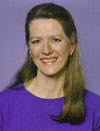 |
Martha Eddy, New York City
|
||||||||||||||||||
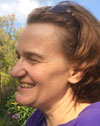 |
Mechthild "Mecke" Nagel, Cortland, New York, GermanyWhen asked "What does 'dignity through solidarity' mean to you?" Mecke explained, "A positive peace approach and selfless service to others." |
||||||||||||||||||
 |
Michael Boyer, Hameln (Hamelin), GermanyWhen asked "What does 'dignity through solidarity' mean to you?" Michael responded, "Solidarity with your fellows should prerequisite dignified relations." |
||||||||||||||||||
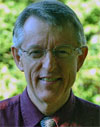 |
Michael Britton, Highland Park, New Jersey, U.S.A. Dearest Michael! What a gift it is to have you as a core pillar of our dignity work since 2006! Thank you so much for kindly accepting that we honored you with our 2017 Lifetime Commitment Award! |
||||||||||||||||||
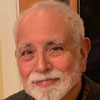 |
Michael Perlin, New York City, New Jersey, U.S.A.Dear Michael! What a pillar of our dignity work you have been since our dear George Woods brought you to us in 2006! Thank you so much for kindly accepting that we honored you with our 2012 Lifetime Commitment Award! |
||||||||||||||||||
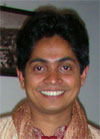 |
Azad Mohammad Abul Kalam, Dhaka, Bangladesh "Dignity: Ensure the rights of the people and treat people equally as well as equity." |
||||||||||||||||||
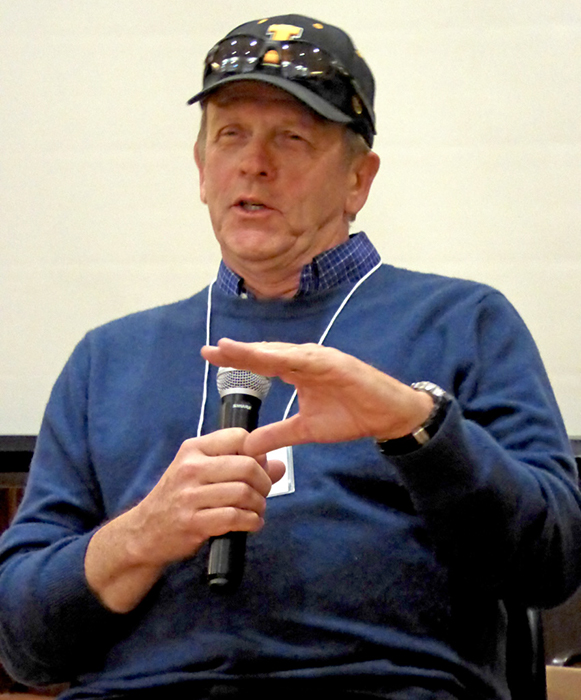 |
Monty Marshall, Virginia, U.S.A.Monty G. Marshall, Ph.D., produces global societal-systems data and analyses through a for-profit corporation, Societal-Systems Research Inc., and a not-for-profit corporation, the Center for Systemic Peace, which continues to provide the Web vehicle to disseminate data resources and reports as in the past. Until 2010, he was a Research Professor at the School of Public Policy George Mason University and a Senior Research Associate, Center for International Development and Conflict Management (CIDCM) at the University of Maryland, College Park. He has established and until recently directed the Center for Systemic Peace (CSP), a not-for-profit social science research enterprise focusing on global systems analysis and, especially, the problem of political violence within the context of complex societal-system development processes. Since August 1998, he has served as a Core Member of the State Failure Task Force, a data-driven global research project mandated by the Office of the Vice President of the United States, and a Senior Research Associate with CIDCM. |
||||||||||||||||||
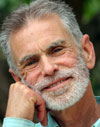 |
Nimrod Sheinman, Tel AvivNimrod Sheinman B.Sc., N.D. is an Integrative Naturopathic Physician and one of Israel's most experienced and well respected mind-body authorities. He is the founder of Israel's Center for Mindfulness in Education (2013), and an active participant in The Van Leer Jerusalem Institute's group for Spirituality in Education. He was the co-founder of Israel's Center for Mind-Body Medicine (1998), and past director of the mind-body unit, Integrative Medicine Department, Rabin Medical Center, Israel. [read more] |
||||||||||||||||||
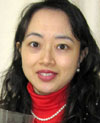 |
Noriko Ishihara, Tokyo, Japan
|
||||||||||||||||||
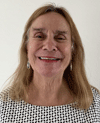 |
Nora Alfano, Punta Gorda, Florida, U.S.A.Nora Alfano is a retired teacher, dedicated to fostering the dignity of the disabled through education of the students and the community. She has promoted social inclusion through sports as a Special Olympics volunteer. Nora has a B.S. in Education, Special Education from Fitchburg State University. |
||||||||||||||||||
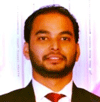 |
Omkareshwar Pathak, Bhopal, Madhya Pradesh, IndiaAssistant Professor of Law at Jagran Lakecity University,
Jagran Lakecity University. |
||||||||||||||||||
 |
Peter Barus, Jacksonville, Whitingham, Vermont, U.S.A.
|
||||||||||||||||||
 |
Peter Coleman, New York CityPeter Coleman, Director of the Morton Deutsch International Center for Cooperation and Conflict Resolution
(MD-ICCCR), Columbia University, Teachers College (TC), is the recipient of the 2020 HumanDHS Lifetime Commitment Award. It is a great honor to have him contribute with his crucially important work to this workshop! Peter T. Coleman is Professor of Psychology and Education at Columbia University, where he holds a joint-appointment at Teachers College and The Earth Institute. Dr. Coleman directs the Morton Deutsch International Center for Cooperation and Conflict Resolution (MD-ICCCR), is founding director of the Institute for Psychological Science and Practice (IPSP), and is executive director of Columbia University’s Advanced Consortium on Cooperation, Conflict, and Complexity (AC4). His book titled, The Way Out: How to Overcome Toxic Polarization was released in 2021. Morton Deutsch and Peter Coleman have been pillars of the Human Dignity and Humiliation Studies (HumanDHS) network since its inception, and on December 11, 2009, Morton Deutsch was the first recipient of the HumanDHS Lifetime Commitment Award. Peter Coleman is a co-sponsor of this event and our anchor at Columbia University. Without his support, there would be no workshop. He is a distinguished contributor since the inception of our dignity community since 2001, together with Morton Deutsch. It is a great joy and immense honor for us that he is willing to give us his time this December. Peter and his team are a shining example of putting ideas into practice, practice that transcends international and institutional boundaries. Our relationship with Columbia University is one model for our WDUi of working in concert with a degree-granting institution, rather than in competition. |
||||||||||||||||||
 |
Peter Pollard, Hatfield, Massachusetts, U.S.A.
|
||||||||||||||||||
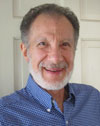 |
Philip Brown, Colorado Springs, Colorado, and New Jersey, U.S.A.
|
||||||||||||||||||
Raj Patel |
|||||||||||||||||||
 |
Qin Shao, Pennsylvania, U.S.A., ChinaHow can we ever thank Michael Perlin enough, dear Qin, for bringing us together in 2014! Thank you for your loving and dignifying support! |
||||||||||||||||||
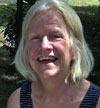 |
Rebecca (Becky) Tabaczynski, Lexington, Massachusetts, U.S.A.What does "dignity through solidarity" mean to you? |
||||||||||||||||||
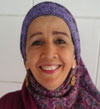 |
Redjane Andrade, Recife, Pernambuco, BrazilThank you, dear Redjane, for your dignifying presence in this world! We are glad that our dear Peace Linguist Professor Francisco Gomes de Matos brought you to us! |
||||||||||||||||||
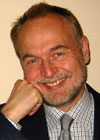 |
Robert Anderson, New York CityWhat does "dignity through solidarity" mean to you? "Gaining awareness of multiple perspective on dignity and building global capacity." |
||||||||||||||||||
 |
Sam Manickam, Mysore, IndiaProfessor in Clinical Psychology,
Department of Psychiatry, J.S.S. Medical College & Hospital, Ramanuja Road, Mysore, India
|
||||||||||||||||||
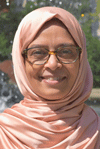 |
Sarah Sayeed, New York CitySarah Sayeed, Ph.D., is the Chair and Executive Director of the Civic Engagement Commission of New York City. She is a Bronx resident and has been dedicated to building an inclusive public square for almost two decades. She kindly wrote in her registration for this workshop on November 23, 2022: "The Commission identified dignity as one of its core values for how we approach engagement — alongside other values including listening; dynamic learning; collaboration; accessibility & justice; manifesting community power and imaginative ways of working." |
||||||||||||||||||
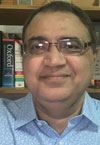 |
Shahid Khan, Brooklyn — Little PakistanDear Shahid, you are a dear member of our dignity community since many years, and we are deeply thankful for your initiative to organize one of our future conferences in Pakistan! |
||||||||||||||||||
 |
Sharon Steinborn, Las Cruces, New Mexico, U.S.A.
|
||||||||||||||||||
 |
Suni Muraleedharan, Perinthalmanna, Kerala, IndiaSuni kindly wrote in the registration that he is a clinical psychologist by Passion and Profession. "I am a Human being as well as a Clinical Psychologist by profession, understanding human as human." |
||||||||||||||||||
Susanna Pearce, Ithaca, New YorkWelcome to our workshop, dear Susanna! |
|||||||||||||||||||
 |
Sushrut Jadhav, London, United KingdomSushrut S. Jadhav, MBBS, MD, MRCPsych., PhD,
Professor of Cultural Psychiatry, University College London,
is also a Research Associate of the Department of Anthropology, SOAS, in London.
|
||||||||||||||||||
 |
Sonja Ewerdt-Schlaak, Saxony, GermanyJudge, Mediator, Lecturer, Coach and Supervisor for mediators and legal professionals. |
||||||||||||||||||
Susan Adams, Oregon, U.S.A.Susan is a retired teacher. Welcome, dear Susan! |
|||||||||||||||||||
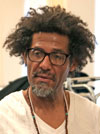 |
Tony Gaskew, Pittsburgh, New York CityThank you so much, dear Tony, for being our inspiration since our Annette Anderson-Engler brought you to us in 2008! You brought your important message to many of our December workshops in New York City! Thank you so much for your important contribution to Dignilogue 3 in our 2021 workshop (Video)! |
||||||||||||||||||
 |
Tracey-Leigh Wessels, Durban, Kwazulu-Natal, South AfricaDear Tracey-Leigh, thank you for kindly sharing your thoughts on 7th November 2021: "The longer I work in my field, the greater the sense that recognition of an individual's inherent dignity starts in the family unit and then filters out... if we can get it right in the family, we are on the road to success for the next generation. My motto, it's one family, one child at a time." |
||||||||||||||||||
 |
Valerie Owolo, New YorkValerie Owolo has a Masters in Organizational Psychology from MD-ICCCR Teachers College, Columbia University. |
||||||||||||||||||
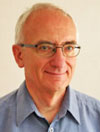 |
Uli Spalthoff, Southern Germany
|
||||||||||||||||||
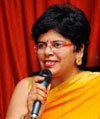 |
Vinita Raj, Indore, Madhya Pradesh, IndiaWelcome to our workshop, dear Vinita! Our entire global dignity community is grateful for the 2017 Dignity Conference in Indore that YOU helped convene! |
||||||||||||||||||
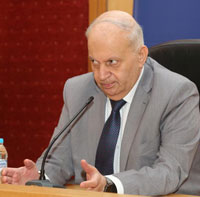 |
Walid Sarhan, Amman, JordanWalid Sarhan, MD, FRCPsych, IDFAP, is a Senior Consultant psychiatrist working in Amman, Jordan. He is the Chief Editor of The Arab Journal of Psychiatry, a Member and Fellow of the Royal College of Psychiatrists (FRCPsych), an International Distinguished Fellow of the American Psychiatric Association (IDFAPA), and an honorary member of the World Psychiatric Association. He is very active in continuous medical education and public awareness building. He has been honored as "the best Arab Psychiatrist in the world" in 2022. |
||||||||||||||||||
Rationale, Methodology, and Frame
Rationale
This workshop series is part of a larger process. Each workshop is much more than a stand-alone event. It is part of the overall mission of our global dignity movement, which is to create an atmosphere in which people can meet on a plane of mutual friendship and equality in dignity. The workshop invites its participants to experiment with creating a new culture of global cohesion and togetherness, and to nurture a global family of dignity, a family that truly acts like a good family should act and protects and cherishes our unity in diversity. The workshop invites into enlarging and transcending concepts such private versus public, or family/friends/good neighbors versus "bad neighbors" (or even "enemies"), as well as concepts such as life mission versus job/hobby..
Given the current context of the field of international conflict, the impact of emotions on conflict has become one of the most important questions worldwide. However, there are only scattered publications in the research and applied literature that would address issues on conflict and emotion directly, as well as their relations and their impact on public policy.
The first one-day meeting was held at Teachers College, Columbia University, in 2002, convened by Morton Deutsch personally, the first two-day workshop in 2004, hosted by the Columbia University's Conflict Resolution Network (CU-CRN), since 2009, AC4 stepped into the place of CU-CRN), with special help from SIPA – Center for International Conflict Resolution (CICR) and The Morton Deutsch International Center for Cooperation and Conflict Resolution (MD-ICCCR)
Since 2004, CICR on behalf of CU-CRN and later AC4, together with the Human Dignity and Humiliation Studies (HumanDHS) network and, since 2011, also the World Dignity University (WDU) initiative, invites selected groups of scholars, counselors, conflict resolution practitioners, mediators, and teachers among other professions for a two-day workshop every year to explore issues of conflict and emotions and its application to actual negotiations and diplomacy. The aim is to particularly probe the role of the notion of humiliation from the two different angles of conflict and emotion.
The workshops are envisaged as a learning community gathering, interactive and highly participatory. The purpose is to create an open space to identify and sharpen our understanding of the discourse and debate on emotion and conflict and the role that might, or might not be played by humiliation within this field. We hope to be able to continue this effort in follow-up workshops in the future.
We see humiliation as entry point into broader analysis and not as "single interest scholarship." We are aware that most participants focus on other aspects than humiliation in their work and have not thought about humiliation much, or even at all. We do not expect anybody to do so beforehand. We encourage that everybody comes with his/her background, his/her theoretical concepts and tools, and that we, during the conference, reflect together. We invite everybody to use their focus and give a thought to whether the notion of humiliation could be enriching, or not, and if yes, in what way. We warmly invite diverging and dissenting views.
How We Go About
In our conferences, we choose a dialogical methodology that stresses interaction and participation, because we wish to create an atmosphere of openness and respectful inquiry through "dignity dialogues" or dignilogues and, when appropriate, the use of Open Space Technology. We believe that notions such as dignity and respect for equal dignity are important not only for conflict resolution, but also for conferences such as our workshops. The name Human Dignity and Humiliation Studies attempts to express this. We wish to strive for consistency between what we think are important values for conflict resolution, and the way we conduct our work and our conferences.
We believe in "waging good conflict" (Jean Baker Miller). We believe that diverging opinions and perspectives need to be expressed and not avoided, because diversity enriches. However, diversity only enriches if embedded into mutual connection and appreciation. If not harnessed lovingly and caringly, diversity has the potential to divide, create hostility, and foster hatred and even violence. In the spirit of our vision, we, the HumanDHS network, wish therefore to avoid the latter and foster an atmosphere of common ground and mutually caring connections as a space for the safe expression of even the deepest differences and disagreements, and the toughest questions of humiliation, trauma, and injustice.
Every dignilogue is being opened by brief remarks by each participant to present their entry points into the inquiry. In order to facilitate feedback, we wish to make available a brief synopsis of 1 to 4 pages, preferably with references, from each participant, prior to the workshop through this site so that all participants can meet virtually before meeting in person. Longer papers are welcome as well both prior and subsequent to our workshops, not least for the envisaged publications of the results of our conferences. Please notify us, if you wish to submit any of your papers also as a book chapter or as a journal article in our Journal of Human Dignity and Humiliation Studies.
All participants are warmly invited to send in their papers as soon as they can. We would be grateful if you could help us by formatting your contribution as follows:
1. Title: bold and in a large font.
2. The author's name under the title, proceeded by a copyright sign ![]() .
.
3. In case the text is longer than one page: A footer for the name of the author, and a header for the title and the page number (in Word, you can use View > Header and Footer > Page Setup > Different first page, etc.).
4. Spacing: Single-spacing.
5.
For non-natural English speakers who need support to make a text readable, please let us know and we try to find help.
5. The final Word document needs to be transformed into a Pdf file (use, for example, convert.neevia.com), and given a name. Please use your family name, and then identify the conference, in case of the 2008 NY workshop, this would read as follows: "FamilynameNY08meeting."
6. Please send us both you Word and Pdf files. Thank you!
Peace Linguist Francisco Gomes de Matos commented on this format as follows (May 2, 2012): "It enhances RELATIONAL DIGNITY. Everyone will make the most of such dignifyingly used time! A great humanizing, interactive format: a little bit of MONOlogue, followed by much DIALOGUE, will help create DIGNILOGUE."
Frame
by Linda M. Hartling, Ph.D., Director of Human Dignity and Humiliation Studies (until 2008 Associate Director of the Jean Baker Miller Training Institute at Wellesley College in Boston, USA)
In our conferences we aim at creating a humiliation-free, collaborative learning environment characterized by mutual respect, mutual empathy, and openness to difference. The perspective of appreciative enquiry is a useful frame of our work. Our HumanDHS efforts are not just about the work we do together, but also about HOW WE WORK TOGETHER. At appropriate points during our conferences, for example at the end of each day, we take a moment to reflect on the practices observed that contributed to an appreciative/humiliation-free learning experience.
It is important to emphasize that an appreciative approach is not about expecting people to agree. In fact, differences of opinion enrich the conversation and deepen people's understanding of ideas. This could be conceptualized as "waging good conflict" (Jean Baker Miller), which means practicing radical respect for differences and being open to a variety of perspectives and engaging others without contempt or rankism. As we have seen in many fields, contempt and rankism drain energy away from the important work that needs to be done. Most people only know "conflict" as a form of war within a win/lose frame. "Waging good conflict," on the other side, is about being empathic and respectful, making room for authenticity, creating clarity, and growth.
Please see also the following background material, mainly created by Linda Hartling:
• Dignilogue Tips and Dynamic Dignilogue List, created on October 10, 2015, for the 2015 Workshop on Transforming Humiliation and Violent Conflict, in New York City, December 3 – 4, 2015.
• Dignilogue: An Introduction to Dignity + Dialogue, created on 31th May 2015 for the 2015 Kigali Conference
• Greetings to All (short version), created on 16h April 2013 for the 2013 South Africa Conference
• Greetings to All (long version), created on 16h April 2013 for the 2013 South Africa Conference
• Welcome to Everybody, created on 12th August 2012 for the 2012 Norway Conference
• Our Open Space Dignilogue Format, created on 12th August 2012 for the 2012 Norway Conference
• A Summary of Our Dignilogue Format for you to download
• An Appreciative Frame: Beginning a Dialogue on Human Dignity and Humiliation, written by Linda Hartling in 2005
See also:
• Appreciative Facilitation: Hints for Dignilogue Moderators, written by Judith Thompson in February 2006 to support the moderators of our workshops
• Buddhist Teachings on Right Speech, kindly provided to us by Thomas Daffern in 2006, relating to our quest for appreciative enquiry, caring and being
• Please see also the videos on our Appreciative Frame, created by Linda Hartling:
- Appreciative Frame, recorded on August 23, 2022, in Portland, Oregon, USA, for our 37th Annual Conference of Human Dignity and Humiliation Studies, in Amman, Jordan, 5th – 7th September 2022
- Appreciative Frame, recorded on December 9, 2021, for our 2021 New York Workshop
- Appreciative Frame, recorded on December 10, 2020, for our 2020 New York Workshop
- Appreciative Frame, recorded on December 5, 2019, for our 2019 New York Workshop
- Appreciative Frame, recorded on December 8, 2016, at the 2016 Workshop on Transforming Humiliation and Violent Conflict, in New York City, December 8 – 9, 2016
- Appreciative Enquiry 4, recorded on May 27, 2015, in Portland, Oregon, USA, for the 25th Annual Conference of Human Dignity and Humiliation Studies, in Kigali, Rwanda, 2nd – 5th June 2015
- Our Appreciative Frame 3, a video created in December 2014 (see also Pdf), for the 2014 Workshop on Transforming Humiliation and Violent Conflict, in New York City, December 4 – 5, 2014
- Appreciative Enquiry 2, a video that was uploaded onto YouTube on August 11, 2012, in preparation of the 19th Annual Conference of Human Dignity and Humiliation Studies, 27th – 30th August 2012, in Oslo, Norway
- Appreciative Enquiry 1, a video that was recorded on October 30, 2011, in Portland, Oregon, USA, by Evelin Lindner, for the World Dignity University initiative
List of Conveners
Honorary Convener 2003 – 2017: Morton Deutsch (February 4, 1920 – March 13, 2017), E. L. Thorndike Professor Emeritus of Psychology and Education, and Director Emeritus of The Morton Deutsch International Center for Cooperation and Conflict Resolution (MD-ICCCR), Teachers College, Columbia University
Morton Deutsch has been one of the world's most respected scholars and the founder of The Morton Deutsch International Center for Cooperation and Conflict Resolution (MD-ICCCR). MD-ICCCR was part of the Columbia University Conflict Resolution Network (CU-CRN), and since 2009 co-founded the Advanced Consortium on Cooperation, Conflict, and Complexity (AC4). Professor Deutsch has been widely honored for his scientific contributions involving research on cooperation and competition, social justice, group dynamics, and conflict resolution. He has published extensively and is well known for his pioneering studies in intergroup relations, social conformity, and the social psychology of justice. His books include: Interracial Housing (1951); Theories in Social Psychology (1965); The Resolution of Conflict (1973); Distributive Justice (1985); and The Handbook of Conflict Resolution: Theory and Practice (2000, 2nd edition 2006). Please note, in particular, Morton Deutsch's pledge titled Imagine a Global Human Community and its progress.
Morton Deutsch has been a Member of the HumanDHS Global Advisory Board since the inception of our dignity work in 2001, and, in 2014, he accepted, "with delight," our invitation to be our HumanDHS Board of Directors Honorary Lifetime Member. Morton Deutsch has also been the first recipient of the HumanDHS Lifetime Commitment Award, which he received at the 2009 Workshop on Transforming Humiliation and Violent Conflict. Furthermore, Morton Deutsch has been a Founding Member of the World Dignity University initiative.
Morton Deutsch founded this workshop series in 2003 and has been its Honorary Convener until his passing in 2017. We will honor his memory by conducting this workshop also in the future. The first "Annual Round Table of Human Dignity and Humiliation Studies" (as we called it then) was convened by Morton Deutsch at the MC-ICCCR on July 7, 2003, with Peter T. Coleman, Beth Fisher-Yoshida, Janet Gerson, Andrea Bartoli, Michelle Fine, and Susan Opotow as participants.
We wish to give special thanks to Peter Coleman, Beth Fisher-Yoshida, and Janet Gerson for their ongoing substantive support for our dignity work since 2001. Andrea Bartoli inspired this workshop series and helped design it in 2003. He was at that time the Director of the Center for International Conflict Resolution (CICR) at the School of International and Public Affairs, Columbia University, and Chairman of the Columbia University Conflict Resolution Network (CU-CRN). Andrea Bartoli is a Member of the HumanDHS Global Advisory Board since its inception. Also his successor, Aldo Civico, kindly supported this workshop, as did his successor,
Jean-Marie Guéhenno, who became the President of the International Crisis Group in 2014. We wish to give special thanks to all three for their kind support. Since 2015, CIRC is dormant and the Arnold A. Saltzman Institute of War and Peace Studies (SIWPS) at the School of International and Public Affairs offers courses in specialization in conflict resolution (ICR Concentration).
Linda M. Hartling, Ph.D., Social Psychologist, organizer of the HumanDHS conferences, in support of the local conveners
Linda M. Hartling, Ph.D., is the recipient of the 2015 Human Dignity (Half!) Lifetime Commitment Award.
She is the Director of Human Dignity and Humiliation Studies (HumanDHS) and contributes to the leadership and development of workshops, conferences, Dignity Press publications, and the World Dignity University initiative. She works in daily collaboration with HumanDHS Founding President Evelin Lindner and is the orchestrator and key creator of the Dignity Letter. She is also a member of the HumanDHS Global Advisory Board, HumanDHS Global Core Team, HumanDHS Global Coordinating Team, HumanDHS Research Team, and HumanDHS Education Team.
Linda Hartling's husband Richard Slaven, formerly Brandeis University, Massachusetts, U.S.A., is the Director of HumanDHS Dignifunding. Richard Slaven is a Member of the Board of Directors of HumanDHS, he is a member of the HumanDHS Global Advisory Board and a Member of the HumanDHS Planning Committee. He is the recipient of the 2014 HumanDHS Lifetime Commitment Award.
Prior to the founding of HumanDHS, Linda Hartling was the Associate Director the Jean Baker Miller Training Institute (JBMTI) at the Stone Center, which was part of the Wellesley Centers for Women at Wellesley College in Massachusetts. She worked closely with Jean Baker Miller, MD, and other colleagues on the development of Relational-Cultural Theory. She holds a doctoral degree in clinical/community psychology and she developed the first scale to assess the internal experience of humiliation in 1996, which has been translated into many languages. In addition, she has published papers and chapters on resilience, substance abuse prevention, shame and humiliation, relational practice in the workplace, and Relational-Cultural Theory. [read more]
Linda Hartling kindly co-edited this book, wrote the Foreword and the final chapter:
"Moving Beyond Humiliation: A Relational Conceptualization of Human Rights." In Human Dignity: Practices, Discourses, and Transformations: Essays on Dignity Studies in Honor of Evelin G. Lindner. Edited by Chipamong Chowdhury, Michael Britton, and Linda Hartling. Chapter 15. Lake Oswego, OR: Dignity Press, 2019
Please see also:
• Humiliation: Real Pain, A Pathway to Violence, the draft of Linda's paper for Round Table 2 of our 2005 Workshop on Humiliation and Violent Conflict, Columbia University, New York City
• Humiliation: Assessing the Impact of Derision, Degradation, and Debasement, first published in The Journal of Primary Prevention, 19(4): 259-278, co-authored with T. Luchetta, 1999
• Shame and Humiliation: From Isolation to Relational Transformation, the Jean Baker Miller Training Institute (JBMIT), Wellesley Centers for Women, Wellesley College No. 88, Wellesley, MA 02481, co-authored with Wendy Rosen, Maureen Walker, Judith V. Jordan, 2000.
• Humiliation and Assistance: Telling the Truth About Power, Telling a New Story, paper prepared for the 5th Annual Conference of Human Dignity and Humiliation Studies 'Beyond Humiliation: Encouraging Human Dignity in the Lives and Work of All People', in Berlin, 15th -17th September, 2005
• Dignilogue Tips and Dynamic Dignilogue List, created on October 10, 2015, for the 2015 Workshop on Transforming Humiliation and Violent Conflict, in New York City, December 3 – 4, 2015
• Mini-Documentary of the Annual Human Dignity and Humiliation Studies Workshop on Transforming Humiliation and Violent Conflict "The Globalization of Dignity," December 8 - 9, 2016
See also Linda Hartling's introductions to the Appreciative Frame that we use in our work.
[read more]
Evelin Gerda Lindner, Medical Doctor, Clinical and Social Psychologist, Ph.D. (Dr. med.), Ph.D. (Dr. psychol.), organizer of the HumanDHS conferences, in supporting of the local conveners
Evelin Gerda Lindner is the Founding President of the Human Dignity and Humiliation Studies (HumanDHS) network and initiator of the World Dignity University initiative. She is a transdisciplinary social scientist and humanist who holds two Ph.D.s, one in medicine and one in psychology. In 1996, she designed a research project on the concept of humiliation and its role in genocide and war. German history served as starting point. She is the recipient of the 2006 SBAP Award, the 2009 "Prisoner’s Testament" Peace Award, the 2014 HumanDHS Lifetime Commitment Award, and she has been nominated for the Nobel Peace Prize in 2015, 2016, and 2017. She is affiliated with the Columbia University Conflict Resolution Network (CU-CRN), which was superseded, in 2009, by the Advanced Consortium on Cooperation, Conflict, and Complexity (AC4), at Columbia University, New York City. She is also affiliated with the University of Oslo, Norway, with its Department of Psychology since 1997, periodically also its Center for Gender Research and its Norwegian Centre for Human Rights, and, furthermore, with the Maison des Sciences de l'Homme in Paris since 2001. Lindner is teaching globally, including in South East Asia, the Middle East, Australia, Africa, and other places globally. [read more]
Please see:
• Interview with Evelin Lindner - Challenges of our Time; Learning to Connect, December 8, 2016
• Mini-Documentary of the Annual Human Dignity and Humiliation Studies Workshop on Transforming Humiliation and Violent Conflict "The Globalization of Dignity," December 8 - 9, 2016
Participants in all NY workshops since 2003
Papers
All participants are warmly invited to send in full papers after the workshop.
Please notify us, if you wish to submit any of your papers also as a book chapter or as a journal article in our Journal of Human Dignity and Humiliation Studies.
Please see earlier submitted papers here:
• List of all Publications
• 2004 Workshop on Humiliation and Violent Conflict
• 2005 Workshop on Humiliation and Violent Conflict
• 2006 Workshop on Humiliation and Violent Conflict
• 2007 Workshop on Humiliation and Violent Conflict
• 2008 Workshop on Humiliation and Violent Conflict
• 2009 Workshop on Humiliation and Violent Conflict
• 2010 Workshop on Transforming Humiliation and Violent Conflict
• 2011 Workshop on Transforming Humiliation and Violent Conflict
• 2012 Workshop on Transforming Humiliation and Violent Conflict
• 2013 Workshop on Transforming Humiliation and Violent Conflict
• 2014 Workshop on Transforming Humiliation and Violent Conflict
• 2015 Workshop on Transforming Humiliation and Violent Conflict
• 2016 Workshop on Transforming Humiliation and Violent Conflict
• 2017 Workshop on Transforming Humiliation and Violent Conflict
• 2018 Workshop on Transforming Humiliation and Violent Conflict
• 2019 Workshop on Transforming Humiliation and Violent Conflict
• 2020 Workshop on Transforming Humiliation and Violent Conflict
• 2021 Workshop on Transforming Humiliation and Violent Conflict
• 2022 Workshop on Transforming Humiliation and Violent Conflict
Abstracts/Notes/Papers of 2022
Please see further down the papers/notes that participants send in prior to the workshop so that everybody can get acquainted with all others beforehand.
See here the work by:
Andrea Bartoli
Linda M. Hartling
Donald C. Klein
Victoria C. Fontan
Evelin G. Lindner
David C. Yamada (2022)
Non-Degree Higher and Adult Education to Advance Human Dignity (Video | Pdf)
A Workshop within a Workshop facilitated at the First World Dignity University Initiative Workshop, titled "For People and the Planet: Learning for a Future of Dignity," hosted online on December 9, 2022, representing the 19th Annual Workshop co-hosted by Morton Deutsch International Center for Cooperation and Conflict Resolution at Teachers College, Columbia University.
Michael Britton (2022)
Don Klein Celebration Lecture (Video | Video recorded on November 21, 2022)
Annual Lecture at the First World Dignity University Initiative Workshop, titled "For People and the Planet: Learning for a Future of Dignity," hosted online on December 9, 2022, representing the 19th Annual Workshop co-hosted by Morton Deutsch International Center for Cooperation and Conflict Resolution at Teachers College, Columbia University.
Ulrich J. Spalthoff (2022)
Introducing the WDUi Electronic Learning Platform (Video)
Contribution to the First World Dignity University Initiative Workshop, titled "For People and the Planet: Learning for a Future of Dignity," hosted online on December 9, 2022, representing the 19th Annual Workshop co-hosted by Morton Deutsch International Center for Cooperation and Conflict Resolution at Teachers College, Columbia University.
Material


